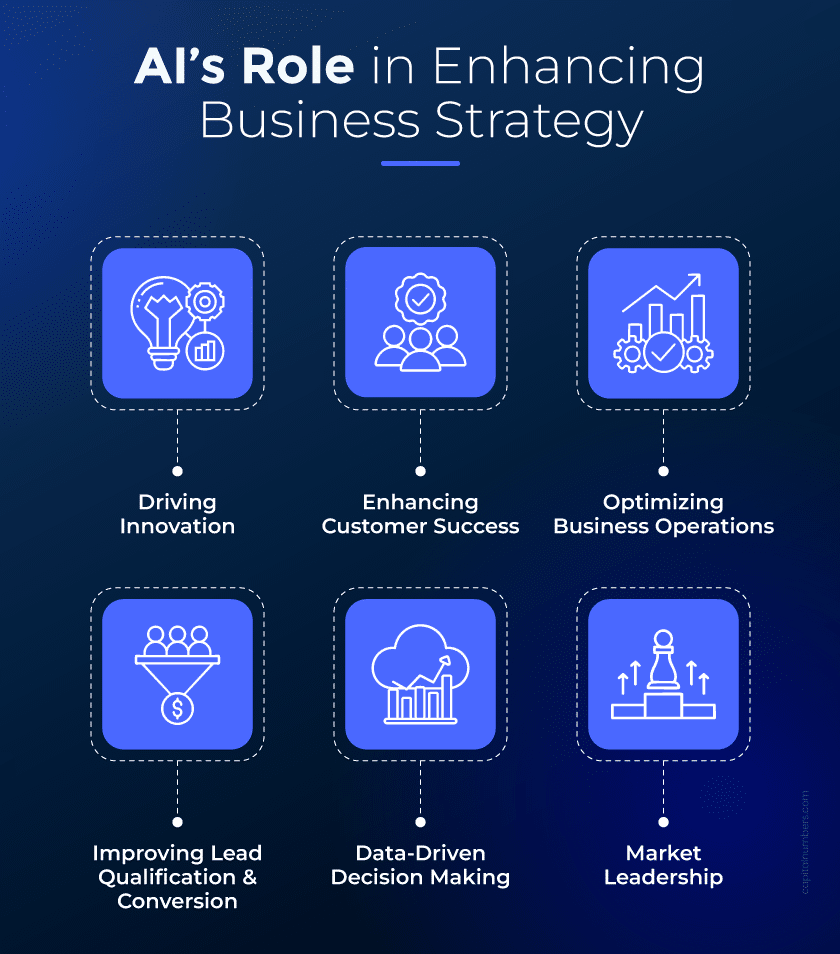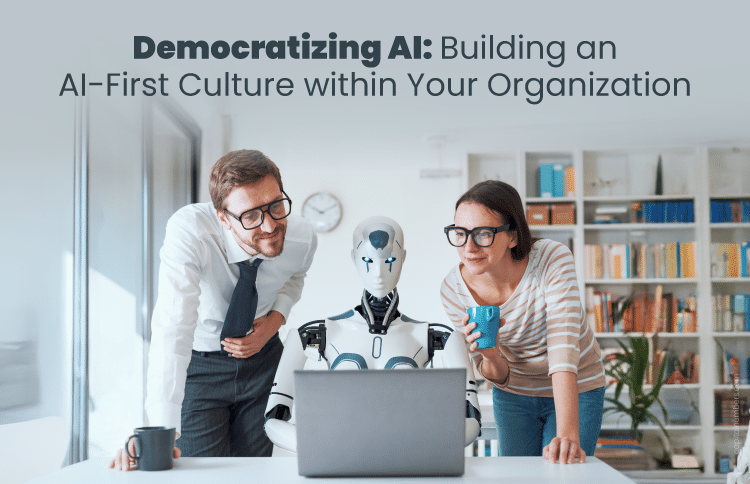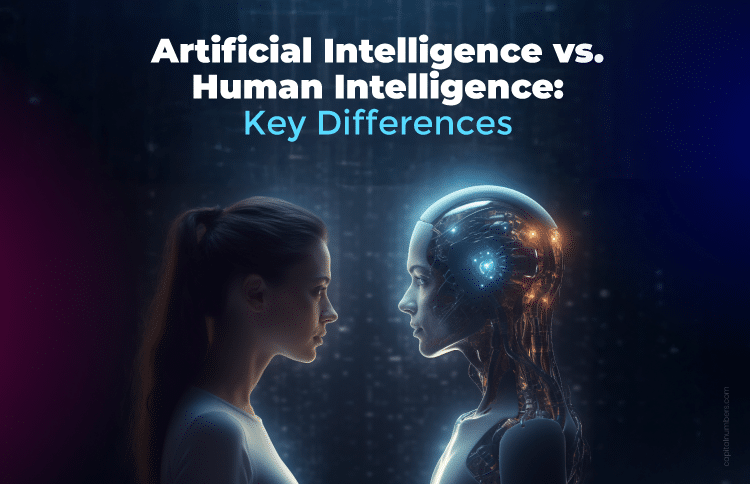Democratizing AI: Building an AI-First Culture within Your Organization
Table of Contents
AI is no longer a futuristic concept; it’s an integral part of our everyday lives. From handling small queries to solving complex problems, AI has seamlessly woven itself into our daily routines. Its rise has been nothing short of explosive, with OpenAI’s ChatGPT lighting a new spark in the world of artificial intelligence, rapidly gaining global attention. This transformative technology is no longer reserved for tech giants but is now empowering businesses of all sizes, helping industries streamline operations and accelerate processes.
AI: A Game-Changer for Every Business
AI has become a game-changer, enabling developers, testers, and product managers to achieve new levels of efficiency and innovation. Through custom AI development, businesses can tailor solutions to their specific needs—transforming workflows, optimizing operations, and unlocking smarter decision-making.
What’s particularly remarkable is AI’s ability to simplify complex code flows. While software development with conditional dependencies often results in lengthier and more intricate code, AI has the unique ability to shorten this flow, making processes more efficient.
AI’s Predictive Power: Transforming Decision-Making
Beyond efficiency, AI can predict outcomes based on the data it’s given, leading us to reconsider the necessity of manual intervention. In many cases, AI can perform tasks that previously required human input, raising questions about the future of certain desk jobs. By automating routine tasks and enhancing decision-making, AI frees up valuable time for more creative and strategic endeavors.
As AI continues to evolve, new subfields are emerging that are shaping the future of business and technology. These include Classical AI, Generative AI, Conversational AI, Agentic AI, Natural Language Processing (NLP), Computer Vision, Advanced Analytics, Explainable AI, and Responsible AI, each bringing unique capabilities that are particularly useful in business transformation, lead qualification, navigation, and more.
By automating decision-making processes using Agentic AI, businesses can ensure that complex decisions are made autonomously in real-time, with minimal human intervention. This capability is particularly useful in industries like finance and logistics, where timely and accurate decision-making is crucial.
AI Technologies Driving Business Transformation
- Classical AI refers to traditional AI systems that use predefined rules and logic to perform tasks. It’s particularly useful in structured environments where clear guidelines exist, such as data analysis, decision-making in finance, and optimizing logistical operations. For businesses, classical AI helps streamline processes, manage workflows, and reduce manual intervention.
- Natural Language Processing (NLP) allows computers to understand, interpret, and generate human language. NLP powers everything from voice assistants like Siri and Alexa to customer service chatbots, making communication between humans and machines more seamless. In businesses, NLP is essential for automating tasks such as content creation, sentiment analysis, and real-time customer service, thus enhancing overall customer experience and operational efficiency.
- Computer Vision enables computers to interpret and understand visual information from the world, such as images or videos. It’s used in everything from facial recognition systems to analyzing production line quality in manufacturing. For businesses, computer vision can improve processes like inventory management, visual search in e-commerce, and quality control in manufacturing, offering real-time, actionable insights and increasing accuracy in tasks that require human-like perception.
- Generative AI focuses on creating new content, such as text, images, or music, based on learned patterns. In business transformation, generative AI can be utilized to automate content creation, generate marketing materials, design innovative product concepts, or even create synthetic data for training other AI models. It helps businesses scale content generation while maintaining creativity and uniqueness.
- Conversational AI involves building systems that can engage in human-like dialogue, such as chatbots, virtual assistants, and voice-activated systems. In businesses, conversational AI is revolutionizing customer service by providing 24/7 support, automating lead qualification, and offering personalized customer experiences. It can also assist in navigation, guiding users through complex processes or systems, whether it’s online shopping, troubleshooting issues, or managing appointments.
- Agentic AI takes AI a step further by acting autonomously to make decisions and carry out tasks without constant human oversight. This is especially useful in areas where real-time decisions need to be made quickly and efficiently, such as in logistics, supply chain management, or financial trading. Agentic AI is capable of optimizing workflows, managing customer interactions, and improving operational efficiency without direct human involvement.
- Advanced Analytics combines machine learning, statistical models, and data mining techniques to analyze large datasets and uncover insights that drive strategic decision-making. It helps businesses predict trends, identify opportunities, and optimize processes, leading to better decision-making. For example, advanced analytics can be used to identify market trends, predict customer behavior, or optimize supply chains. By integrating AI with advanced analytics, businesses can stay ahead of the competition and drive growth.
- Explainable AI (XAI) ensures transparency in AI decision-making. In traditional AI systems, decisions can often be a “black box,” meaning they’re difficult to interpret or understand. XAI seeks to make AI’s processes more understandable for humans, ensuring that decisions made by AI models can be traced, explained, and justified. In business contexts, XAI is crucial for gaining stakeholder trust, especially when AI is used in sensitive areas like finance or healthcare, where understanding the rationale behind AI’s actions is essential.
- Responsible AI focuses on building AI systems that are fair, transparent, accountable, and ethically sound. It’s crucial for businesses to ensure that AI models do not introduce bias, treat users unfairly, or make decisions that could lead to harm. Responsible AI involves incorporating ethical considerations into the design, development, and deployment of AI technologies, ensuring that AI is used in a way that benefits society as a whole. This includes adhering to guidelines on data privacy, fairness, transparency, and accountability to avoid unintended negative consequences.
You May Also Read: AI in 2025: Reshaping Healthcare, Finance, and Retail
AI’s Role in Enhancing Business Strategy

AI can radically shift your business strategy from a routine, operational mindset to an innovative, customer-centric, and market-leading approach. Here’s how integrating AI into your strategy can expand your business from just normal operations to industry innovation:
1. Driving Innovation
AI fosters an environment where experimentation and new ideas thrive. By utilizing generative AI, companies can create innovative products, develop unique marketing strategies, and explore entirely new revenue streams. Rather than relying on conventional processes, AI allows businesses to tap into new creative possibilities—whether it’s crafting highly personalized customer experiences or developing new product concepts at speed. AI’s ability to process vast amounts of data and extract insights leads to ideas that might not have been conceived through traditional methods. This results in higher product innovation and market differentiation, helping businesses stay ahead of the competition.
2. Enhancing Customer Success
AI’s role in customer success is transformative. By using conversational AI and machine learning algorithms, businesses can offer personalized experiences that help retain customers and improve satisfaction. Whether it’s through chatbots that provide 24/7 assistance or AI-driven systems that predict and resolve issues before they arise, AI ensures that customers receive the best possible service. It also helps businesses measure customer sentiment, track engagement, and proactively address customer needs in real-time. This leads to improved customer loyalty, which is crucial in today’s competitive market.
3. Optimizing Business Operations
AI can streamline your day-to-day operations, allowing you to allocate resources more efficiently and reduce overhead costs. Through classical AI models, businesses can automate repetitive tasks, manage workflows, and improve internal communication. AI’s predictive capabilities also help optimize supply chains, inventory management, and even staff allocation, leading to greater operational efficiency and reduced costs.
4. Improving Lead Qualification and Conversion
AI can supercharge your sales process by automating lead qualification and nurturing. Conversational AI tools can interact with potential leads, qualify them based on predefined criteria, and pass on high-value prospects to the sales team. This allows your salespeople to focus on closing deals rather than spending time sifting through unqualified leads. Additionally, AI systems can use historical data to predict which leads are more likely to convert, improving conversion rates and driving revenue growth.
5. Data-Driven Decision Making
AI allows businesses to leverage data like never before. By analyzing large datasets, AI can uncover hidden patterns and provide actionable insights that inform better business decisions. Whether it’s optimizing pricing strategies, choosing the best marketing channels, or identifying areas for cost reduction, AI-powered data analysis gives businesses a competitive edge. In a world where speed and agility matter, AI-driven decisions can be made quickly and accurately, setting your business on top of the list in terms of responsiveness and adaptability.
6. Market Leadership
By adopting AI, businesses can position themselves as industry leaders. Whether through advanced automation, cutting-edge customer service, or innovative products, businesses that integrate AI into their strategy are more likely to lead their markets. AI not only boosts efficiency and lowers costs but also helps organizations predict trends and adapt to changing market conditions, giving them the edge over competitors.
How to Start Building an AI-First Culture Within Your Organization
So, how can you start building an AI-first culture within your organization? Here are some key steps to help you successfully integrate AI:
1. Lead from the Top with Strategic Vision
Building an AI-first culture starts with strong leadership. Ensure that key stakeholders and executives are on board with the vision of integrating AI into your company’s operations. Leadership support is essential for driving AI initiatives and ensuring they align with business objectives.
2. Invest in AI Training with Custom Learning Programs
To successfully integrate AI, upskilling your team is crucial. Offer training programs that equip your workforce with the knowledge and tools needed to embrace AI. By providing employees with a deep understanding of AI technologies and their applications—such as classical AI for structured tasks, generative AI for content creation, conversational AI for customer interactions, agentic AI for autonomous decision-making, NLP for language tasks, computer vision for visual data processing, and responsible AI for ethical considerations—you’ll create a culture of continuous learning and growth.
3. Start Small and Scale with AI Development
Begin by testing AI solutions in specific areas of your business where they can have the most immediate impact. This could include automating lead qualification with conversational AI, streamlining operations with classical AI, enhancing customer interactions with conversational AI, or utilizing agentic AI to optimize supply chain management. Once successful, scale these AI initiatives across other departments, ensuring that AI integration is smooth and impactful.
4. Foster Collaboration Across Teams
AI initiatives often require collaboration between technical and non-technical teams. Encourage cross-departmental cooperation between developers, data scientists, and business managers. This collaborative approach will ensure that AI solutions are well-rounded, innovative, and aligned with business needs.
5. Encourage Experimentation with AI Tools
AI is a rapidly evolving field, and experimentation is essential for success. Encourage your teams to test new ideas and AI tools. By experimenting with different AI models, from machine learning algorithms to natural language processing, you can discover innovative solutions that drive efficiency and improve outcomes.
6. Leverage Data for AI-Driven Insights
AI thrives on data. Ensure your organization has strong data infrastructure in place, enabling AI systems to access clean, structured, and actionable data. By integrating AI-driven insights into decision-making processes, you’ll empower your team to make smarter, more informed choices that lead to better business outcomes.
7. Ensure Ethical AI Practices
As you build your AI-first culture, prioritize ethical considerations. Responsible AI ensures transparency, fairness, and accountability in AI system design, mitigating risks like bias, discrimination, or unintended harm. Ethical AI practices foster trust with your customers, employees, and other stakeholders, ensuring that AI is deployed responsibly and with societal good in mind.
8. Monitor and Continuously Improve AI’s Performance
To ensure that AI delivers sustained value, continuous monitoring and optimization of AI models are essential. This involves tracking the performance of AI systems, ensuring they are working as expected, and making adjustments as needed. Monitoring ensures that AI models stay accurate, effective, and aligned with business goals, and it helps identify any potential risks or biases that need addressing. Regularly updating models and ensuring they evolve as business needs change will help maintain their relevance and effectiveness in achieving organizational objectives.
You May Also Read: AI for Startups: Driving Business Growth in 2025
Final Thoughts
By embedding AI into the very fabric of your company’s operations, you can foster an environment of continuous learning, experimentation, and innovation. An AI-first culture will help your organization stay competitive in a rapidly changing world, unlocking new opportunities for growth and success. Embracing advanced concepts like classical AI, generative AI, conversational AI, agentic AI, NLP, computer vision, explainable AI, responsible AI, and continuous performance monitoring will not only transform your business operations but also drive innovation, improve customer success, and elevate your company to the top of the list in your industry.
Ready to build an AI-first culture in your organization? Partner with Capital Numbers to unlock the power of AI and transform your business with scalable, ethical, and future-ready solutions.
Contact us today to explore custom AI development, consulting, or team augmentation tailored to your goals.
















